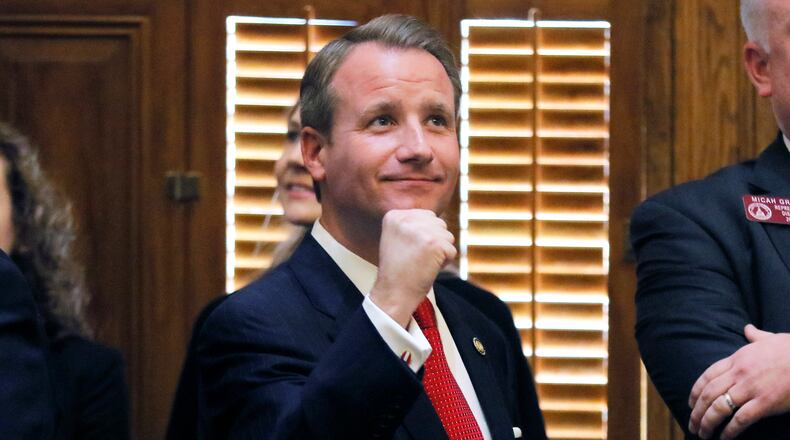A Georgia Senate panel is expected to recommend what would be a fairly revolutionary change in the way lawmakers have traditionally passed hundreds of millions of dollars worth of special-interest tax breaks at the end of each General Assembly session.
A special committee reviewing whether to continue tax breaks — such as those given to filmmakers, developers, research companies and, this past year, yacht rehabbers — plans to recommend that credit and tax cut bills be considered by its chamber only after it takes a year to study their value in advance.
Under the proposal, the Georgia House would file its usual plethora of tax break bills. The Senate would study the bills that pass the House over the interim between sessions, then decide on them the next year.
The General Assembly currently doesn’t given final approval to pension bills until after they’ve been studied over the interim, so the idea isn’t entirely new.
While the change on tax bills may not seem revolutionary, it would slow down the process dramatically from the way things are usually done. Typically, the House passes a slew of tax breaks on to the Senate with little time to review them before the 40th and final day of the session. They often are voted on, with limited study, on the 39th or 40th days of a session.
That results each year in a laundry list of tax breaks that save select businesses and individuals — and cost the state — tens of millions of dollars.
State Sen. John Albers, R-Roswell, the panel's chairman, said his committee's recommendation would give the Senate months to thoroughly vet tax breaks.
“Will it maybe slow things down a little? Yes, but I think the transparency and the good fiduciary part of me says that is the right thing to do,” he said.
Wesley Tharpe, the research director of the Georgia Budget and Policy Institute, a left-leaning group that often criticizes the tax breaks, liked the idea.
“Giving lawmakers a bit more time to weigh whatever arguments and evidence is available would seem sensible,” he said.
The Senate embarked on a study of tax breaks after a 2017 session during which the House flooded the chamber with bills late in the session. They ranged from legislation to lower the state's top 6 percent income tax rate and force online retailers to collect sales taxes on purchases to a measure giving a break to a big Savannah company that wanted to start a business rehabbing giant yachts.
While some of the big ones — such as the income tax cut and an online tax didn't wind up passing the Senate — the yacht tax break and several others did, and the Budget and Policy Institute estimated all of them combined would cost about $483 million over the next five years.
At least some fellow lawmakers and plenty of lobbyists will likely balk at the idea of slowing down the process. Lobbyists are paid to persuade legislators to pass tax bills each year, and lawmakers ramming them through late in the session is part of the political brinkmanship that has played out at the statehouse every session for decades.
Albers' panel is expected to make a set of final recommendations by the end of the year, but he expects the committee to spend several years reviewing the tax breaks currently in place.
As The Atlanta Journal-Constitution reported last month, the state has traditionally been a bit hit-and-miss about reviewing tax breaks and programs to see whether they work in the way they were sold to lawmakers. It hasn't helped that — according to a recent Governing Magazine report — many states such as Georgia have seen declines in staff to audit program
Laura Wheeler, a senior research associate at Georgia State University’s Fiscal Research Center who has been working with the committee, called adding staffers to thoroughly vet breaks or proposals “an investment in your tax policy.”
Albers said: “We absolutely are going to have to look at that. We have to look at what resources we have available.”
About the Author
Keep Reading
The Latest
Featured




